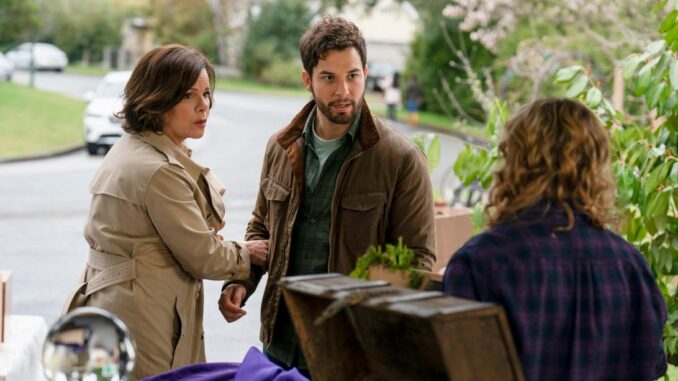
The news hit like a surprise subpoena, unwelcome and undeniably final: So Help Me Todd was cancelled. For fans of the quirky, charming, and deceptively smart CBS procedural, it felt less like a natural conclusion and more like an unfinished sentence, a vibrant painting ripped from the easel before its final brushstrokes. While the landscape of network television is littered with shows that never quite found their footing, So Help Me Todd was different. It wasn't just treading water; it was building, evolving, and cementing its place as a weekly dose of pure, unadulterated television joy. And that, more than anything, is why it deserved a third season – to complete the compelling arcs it had so carefully laid, to continue offering its unique brand of warmth, and to let its effervescent charm fully blossom.
At its heart, the show was a masterclass in intergenerational dynamics, anchored by the irresistible push-pull between Marcia Gay Harden’s formidable, impeccably tailored Margaret Wright and Skylar Astin’s charmingly chaotic, perpetually dishevelled Todd. Their relationship was the show’s pulsating core, a finely tuned symphony of exasperation, begrudging admiration, and unwavering love. Margaret, the shrewd, by-the-book lawyer, found her meticulously ordered world constantly upended by her son, a disgraced but instinctively brilliant private investigator whose methods were as unconventional as his wardrobe. Their verbal sparring was a comedic delight, each witty retort and exasperated sigh painting a vivid picture of a mother and son bound by blood but separated by temperament. A third season would have allowed us to witness Todd’s long-anticipated journey to regain his PI license, a pivotal arc that promised to transform their professional dynamic from a reluctant partnership to one of true, independent equals. It would have shown Margaret, too, navigating a new era of personal freedom and professional evolution, perhaps even embracing some of Todd's "outside the box" thinking.
Beyond the central duo, So Help Me Todd carved out a unique niche in the crowded legal drama landscape with its singular tone. It wasn't a grim, gritty procedural, nor was it a slapstick comedy. Instead, it was a perfectly blended cocktail of sharp legal intrigue, genuine humor, and a surprisingly heartfelt family drama, all wrapped in the cozy mystery aesthetic of a modern-day Scooby-Doo. Cases were often intricate and compelling, but they never overshadowed the character development or the show's inherent wit. Lyle, the stoic, rule-bound investigator, provided a hilarious foil to Todd's spontaneity, while Allison, Todd's perpetually stressed sister, embarked on her own quiet journey of self-discovery amidst a crumbling marriage. Francey, Margaret's no-nonsense assistant, offered a grounding, often humorous, presence. A third season was crucial for these supporting characters too, whose subplots were just beginning to deepen and intertwine, promising rich veins of narrative exploration, from Allison's independent future to Lyle's mysterious past.
Perhaps most significantly, So Help Me Todd was a comfort show in an age dominated by dark, complex narratives. It offered a weekly respite, a dose of intelligent escapism that left viewers feeling uplifted rather than emotionally drained. Its unabashedly optimistic spirit, even in the face of legal dilemmas or personal setbacks, was a refreshing antidote to cynicism. There was a warmth to the Wright family, a sense that even when they were squabbling, they were undeniably there for each other. This palpable sense of care, combined with clever writing and genuinely funny performances, cultivated a loyal fanbase that looked forward to their weekly visit to Portland, to the bustling law firm, and to the chaotic but loving orbit of Margaret and Todd. To cancel such a show when it was clearly hitting its stride, when its characters were on the cusp of significant, earned breakthroughs, feels like a disservice not just to the cast and crew, but to the audience who found genuine joy and connection in its world.
In essence, So Help Me Todd wasn't just another show in the ratings game; it was a burgeoning phenomenon that offered a much-needed blend of intelligence, heart, and humor. It deserved a third season not merely for closure, but for the opportunity to fully realize the potential simmering beneath its charming exterior. To watch Todd finally become the licensed private investigator he was always meant to be, to see Margaret navigate her evolved professional and personal life, and to simply continue enjoying the delightful chemistry of its ensemble cast. Its cancellation leaves a void, a feeling that a story was left unfinished, a promise unfulfilled. So Help Me Todd deserved a third season because it wasn't just good television; it was feel-good television, and in a world craving warmth and wit, that’s a case that should have been won.
